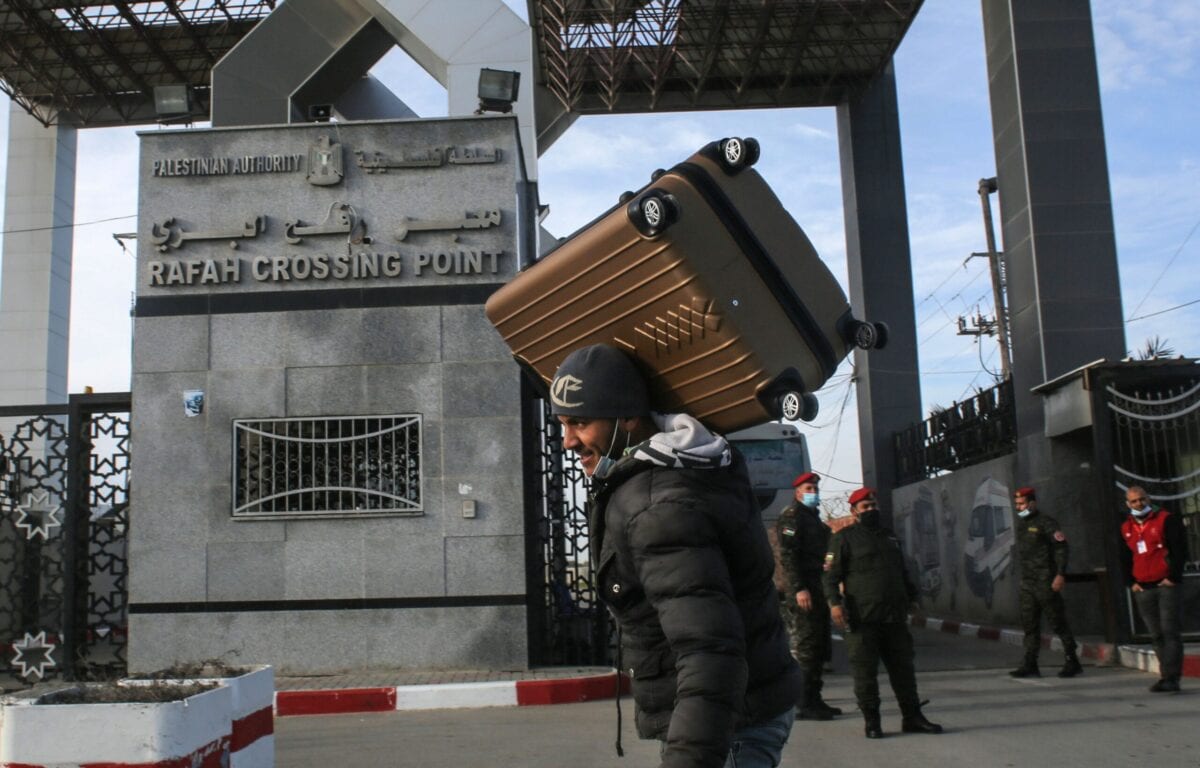An Egyptian border official told a journalist based in Rafah that the Rafah border gate reopened on Monday to permit foreign nationals and wounded Palestinians to enter Egypt from Gaza. The crossing had been blocked throughout the weekend.
Since Israel closed its borders with Gaza last month, Rafah is the only border crossing that remains uncontrolled. A significant development occurred last week that made it possible for foreign passport holders and a number of seriously injured people to leave through Rafah.
But over the weekend, the border was temporarily closed due to an Israeli airstrike that damaged a Palestinian Red Crescent ambulance.

The Egyptian border official announced as part of the reopening on Monday that nine wounded Palestinians who had suffered severe injuries from Israeli airstrikes in Gaza had managed to cross and get medical attention in Egyptian hospitals. The official stated that five individuals went with the injured, bringing the total number of Palestinians sent to Egypt for treatment to ninety-three.
Before the injured Palestinians were allowed to cross the border on Monday, ambulances from the Egyptian Red Crescent had already formed a queue in the area, ready to take them to medical facilities.
Additionally, on Monday afternoon, the General Authority for Crossings and Borders in Gaza declared that foreign nationals and Egyptian citizens whose names were on the first list published on November 1 could now cross at the Rafah crossing. The authorities emphasized that only those on the list would be permitted to pass through and advised those people to go to the crossing right away.
On the other hand, the Palestinian Red Crescent Society (PRCS) in Ramallah reported that at least 25 relief vehicles dispatched by the Egyptian Red Crescent entered Gaza on Sunday. Increasing the overall truck count that has been permitted to enter Gaza to 476 On Monday, more trucks were anticipated to have crossed, but the PCRS was unable to verify if they had done so because of spotty connectivity in some locations.
According to PCRS, roughly thirty trucks a day have been going by on average. PRCS emphasized in its statement that fuel supplies are still not permitted entry into the enclave.








